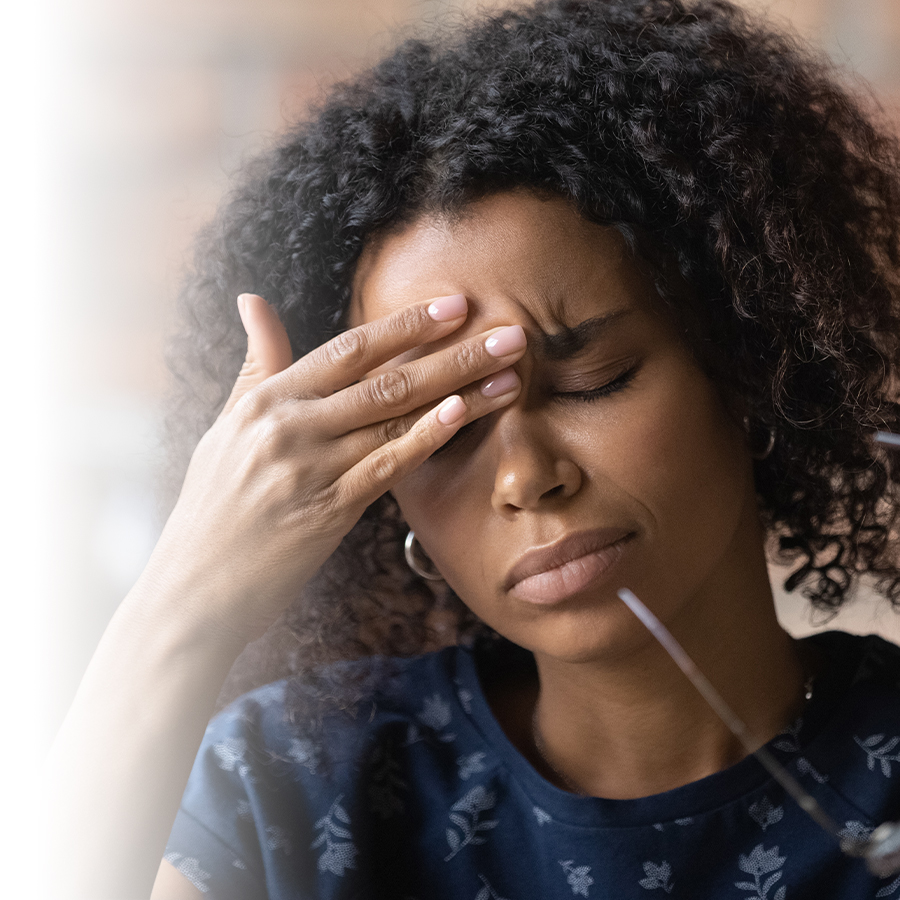Who hasn’t been inconvenienced by a nasty headache? When it strikes, take control of it. Here’s how!
Should you be concerned about a headache?
Headaches—we hear about them in daily conversations; sometimes as a pretext not to do something (“I can’t, I have a headache”) or sometimes to express dismay (“this problem is giving me a headache”). This isn’t surprising, since it is at the top of the list of the most common health problems. In fact, a vast majority of individuals will be affected by them several times in the course of their lifetime.
Also known under the medical term “cephalalgia”, a headache is not an illness, but rather a symptom. A headache occasionally occurs for no apparent reason, but its presence can sometimes be explained by certain lifestyle or medical-related problems.
Here are some examples of factors that may be at the root of a nasty headache:
- lack of sleep
- too much alcohol or an excess of certain foods
- poor posture
- muscle tension in the neck
- hormonal changes
- respiratory infection (cold, flu, sinus infection, etc.)
- eye strain (after spending too much time in front of a screen, for example)
It is normal to be inconvenienced by headaches on occasion. However, if they persist or occur frequently, it is advisable to try to identify their origin. Once the cause has been determined, measures or a treatment plan can be implemented to rectify the situation. A medical visit may be necessary.
How to ease a headache
Here are a few tips intended to ease an occasional mild to moderate headache, without alarming factors (see When to consult a doctor below).
- Rest. When a headache starts, be sure to rest. Rest and relaxation can reduce the duration and intensity.
- Avoid the factors that can worsen your headache. Alcohol consumption, intense physical activity, and exposure to bright light, loud noises or extreme heat are all factors that can worsen your headache or make it harder to bear.
- Consider taking an over-the-counter analgesic. Always consult your pharmacist before purchasing an over-the-counter analgesic. He or she will help you choose the product that is most suitable or confirm that the medication you have in hand is safe for you by taking into account your age, health, and the medication you take.
- Take your mind off things. Enjoy a fun and relaxing activity, until your headache passes or until the analgesic you have taken starts to work.
- Try an alternative technique known to ease pain. Various techniques can help to ease your headache, such as deep breathing, a massage (of the head, nape or shoulders) and certain types of meditation or visualization. Many people will say that these methods, which are entirely free and accessible at all times, are worth their weight in gold!
When to consult a doctor
In rare cases, a headache can be a sign of a more serious problem. You should see a doctor promptly if the headache:
- is severely intense or appears suddenly within a few seconds or minutes
- is accompanied by fever or a stiff neck
- is accompanied by unusual or alarming signs and symptoms (vomiting, weakness, vision problems, paralysis of the face or of another area of the body, convulsions, confusion, altered behaviour, fainting, etc.)
- occurs following intense physical activity, a fall or a blow to the head
Speak to your pharmacist for additional information about headaches and the ways to ease them.

